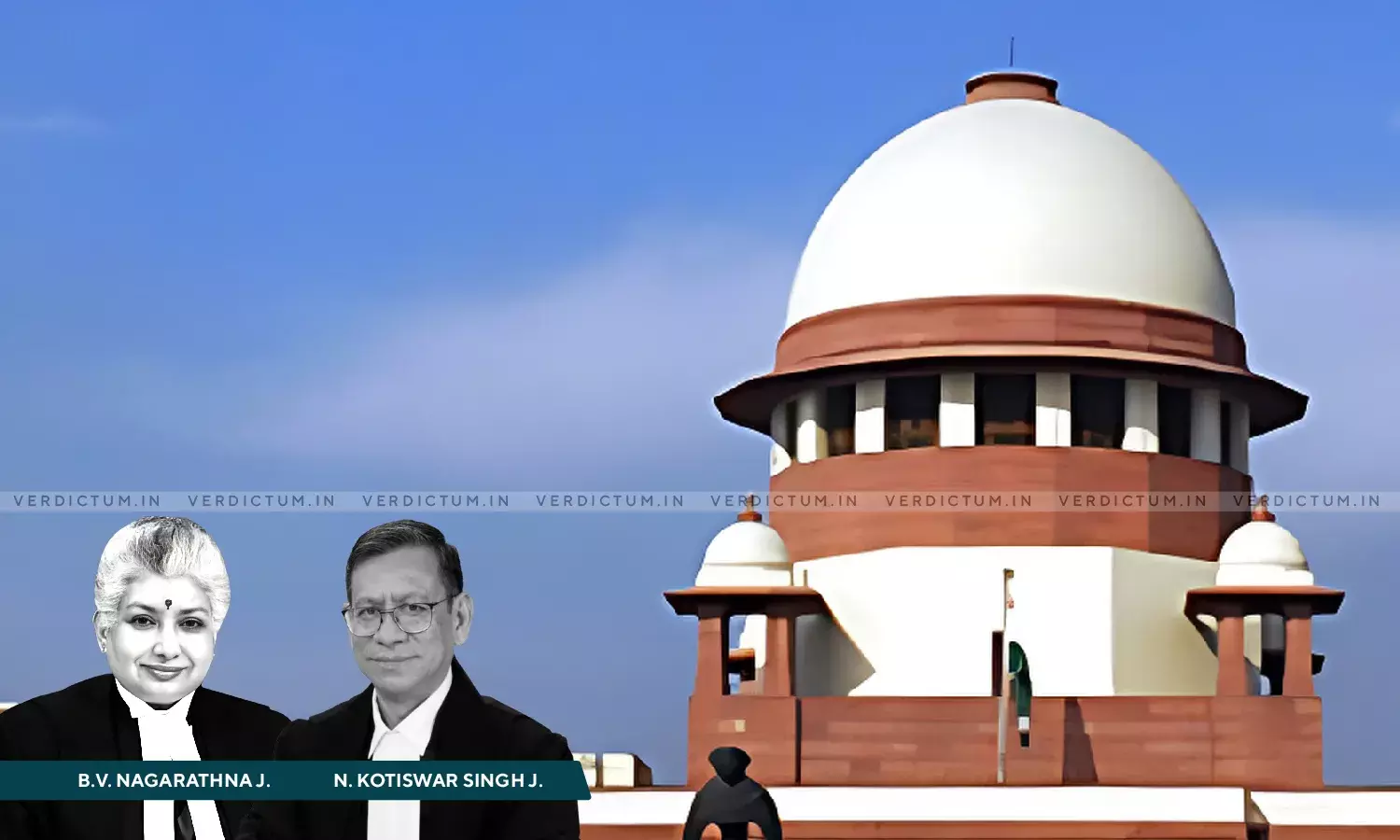Article 113 Limitation Act| A Suit Must Be Instituted Within 3 Yrs From The Date The Right To Sue Accrues, Not From The Occurrence Of The Event: SC

The Supreme Court held that under Article 113 of the Schedule to the Limitation Act, a suit must be instituted within 3 years from the date the right to sue accrues, not from the occurrence of an event as stated in Article 54.
The Court had to determine whether a second suit for specific performance of an agreement, filed after the rejection of a previous suit, was maintainable under the law.
The Bench of Justice B.V. Nagarathna and Justice Nongmeikapam Kotiswar Singh observed, “Thus, generally speaking, the right to sue accrues only when the cause of action arises, that is, the right to prosecute to obtain relief by legal means. The suit must be instituted when the right asserted in the suit is infringed or when there is a clear and unequivocal threat to infringe that right by the defendant against whom the suit is instituted. Article 113 of the Schedule to the Limitation Act provides for a suit to be instituted within three years from the date when the right to sue accrues and not on the happening of an event as stated in Article 54 of the Schedule to the Limitation Act.”
Senior Advocate P.V. Balasubramaniam represented the Appellant, while Senior Advocate V. Giri appeared for the Respondent.
In 1975, an agreement was made between the American missionaries and the India Evangelical Lutheran Church Trust Association (Appellant) to transfer various properties, including the Kodaikanal property, to the Appellant.
The Appellant entered into an agreement to sell a part of the property to M/s. Sri Bala & Co (Respondent). Litigation regarding tenant possession and Court fee requirements led to delays in completing this.
The Respondent initially filed a suit for specific performance in 1993, but the plaint was rejected in 1998 due to non-payment of Court fees. A second suit was filed in 2007, seeking the same relief based on the agreement.
The Appellant sought dismissal of the 2007 suit under Order VII Rule 11(d) of the CPC, contending that it was barred by limitation under Article 54 of the Limitation Act. The Trial Court rejected this plea, stating that the issue of limitation was a mixed question of law and fact to be determined during trial. The High Court upheld this view, leading to the present appeal.
The Supreme Court observed, “We do not appreciate the conduct of the respondent/plaintiff in filing of the second suit belatedly in the year 2007 when they could have done so prior to 12.01.2001, if they were really serious in seeking enforcement of the agreement to sell dated 26.04.1991.”
According to the third column in Article 113, the Bench explained that the time commences to run when the right to sue accrues. The Court explained that the words “right to sue” ordinarily mean the right to seek relief by means of legal proceedings. Generally, the right to sue accrues only when the cause of action arises, that is, the right to prosecute to obtain relief by legal means. “The suit must be instituted when the right asserted in the suit is infringed or when there is a clear and unequivocal threat to infringe that right by the defendant against whom the suit is instituted,” the Bench explained.
Consequently, the Court held, “Thus, on the basis of Order VII Rule 11(d) of the Code read with Article 113 of the Limitation Act by setting aside the impugned orders of the High Court and the trial court and by allowing the application filed under Order VII Rule 11(d) of the Code. Consequently, this appeal is allowed.”
Accordingly, the Supreme Court allowed the Appeal.
Cause Title: Indian Evangelical Lutheran Church Trust Association v. Sri Bala & Co. (Neutral Citation: 2025 INSC 42)
Appearance:
Appellant: Senior Advocate P.V. Balasubramaniam; AOR Anish R. Shah; Advocate Ankit Sahu
Respondent: Senior Advocate V. Giri; Advocates Mahesh Agarwal, Rishi Agrawala, Ankur Saigal, S. Lakshmi Iyer, Sukriti Bhatnagar and Shaswat Singh; AOR E.C. Agrawala

